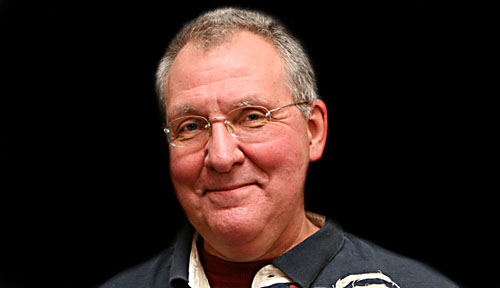Presidential inaugurations are a time for new beginnings, but also a time for farewells. Herein, a heartfelt adieu to George W. Bush.
Don’t forget your baggage, a variety of smart Louis Vuitton items labeled variously: “Free market idolatry,” “Deregulation,” “Cronyism and Corruption,” “Vice-Presidential Government,” “Arrogance in inverse proportion to intelligence,” “The Unitary Executive,” “Supreme Court Justices Roberts and Alito,” “An Obscenely Politicized Department of Justice,” “Foreign Policy Fiascos,” “Unprecedented Increases in Inequality,” “Faith-based Distortions of Science,” “The Full Panoply of War’s Horrors,” and also that scruffy little duffel bag marked “Compassionate Conservatism,” all headed in the short term for Dallas and in the long term for the dustbin of history.
In time, these notions will all seem as remote and quaint as the Geneva Conventions were to Alberto Gonzales. But the one I hope will receive its long overdue internment is the belief of Bush’s hero, Ronald Reagan the Great Communicator, that “Government is not the solution; government is the problem.”
Well, yes — if your government consists of people like John Ashcroft, Alberto Gonzales, Donald Rumsfeld, Dick Cheney, Michael “Heckuva Job” Brown, Michael “What people at the Convention Center” Chertoff, Henry “Wall Street Welfare Czar” Paulson, Tom DeLay, Bill Frist, “Scooter” Libby … the list, unfortunately, goes on and on; the capacity of mind and stomach to deal with it does not.
Bush has revealed the essence of conservative governance — a concerted effort to destroy government and the American people’s faith in the possibilities of government. Of all the legacies of the Bush administration, this may well be the most pernicious. During the Bush years we have seen a government that runs up gargantuan deficits (even before the bailouts connected with Bush’s parting fiasco — the worst financial crisis since the Great Depression); gives 36 percent of tax cuts to the richest one percent of the population while the poor receive only nine percent; privatizes and outsources more government responsibilities (with immense profits for the cronies who head outfits like Blackwater and Haliburton, an increasing lack of accountability for the performance of these functions, along with an undermining and demoralizing of the government agencies that might ordinarily and legitimately be expected to perform such tasks); gives lip service to “moral values” while fostering a culture of sleaze in Washington that makes administrations like those of Ulysses S. Grant or Warren G. Harding look like shining cities on a hill; lies about all of the above and then cynically reminds us “We told you — government is the problem.” Wall Street Journal columnist Thomas Frank had it exactly right when he titled his book on how conservatives rule “The Wrecking Crew.”
George W. Bush arrives at the gated right-wing enclave in Dallas that will be his new home convinced that ultimately history, or at least his new neighbors, will judge him positively. For now, a poll of 109 historians indicates that 61 percent ranked him as the worst president in our history and 98 percent considered his presidency a failure — a poll taken before the financial meltdown of 2008.
Like Harry Truman, he believes his reputation will be rehabilitated. More likely, it is the reputations of James Buchanan, Ulysses S. Grant, Warren G. Harding, Herbert Hoover and Richard Nixon that have been enhanced.
Bush’s predecessor, Bill Clinton, the Great Triangulator, told us that “the era of big government is over.” Perhaps. Let us fervently hope that the era of destructive government is over. But only we can ensure that it is. Whether problem or solution, government is, ultimately, us. We the people. What will we make of it?
Dr. Philip Dynia is an associate professor of political science and the chairman of the department. He can be reached at [email protected].








